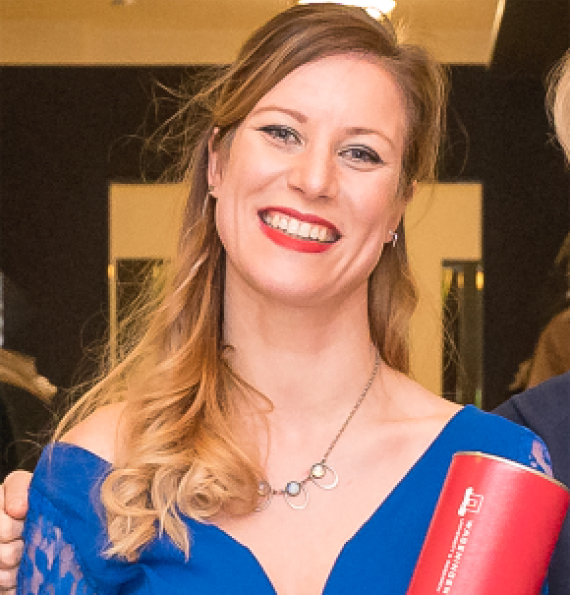PhD candidates have to include a handful of propositions with their thesis. In this feature, they explain their most provocative proposition. This time it’s Paula Harkes, who got her PhD on 10 January for a study on differences between organic and conventional farmland in the soil around crop roots.
‘When I was working on my PhD I started taking part in triathlons and I trained about six times a week. I am good at cycling, but I had never swum competitively and running wasn’t my strongest suit. In a race, I was one of the last out of the water, but I was in third place on the podium at the end. It’s the same thing in PhD research. I don’t like writing much, but I can structure my work well and formulate good research questions. There is a general belief that a PhD researcher has to be good at everything.
There is a general belief that a PhD researcher has to be good at everything
But I don’t think it’s that extreme. The main thing is you have to persevere. Writing is my swimming event. The further you go in the academic world, the more is expected of you, and that includes writing and publishing. But I think you should focus mainly on what you are good at. If you have good ideas but you can’t express them on paper very well, that doesn’t mean you shouldn’t go on tenure track. You must make sure you arrange to have the resources to help you cope with it. When I was writing I asked the people around me for feedback. I don’t think the academic world pays enough attention to that. Which is a pity, because someone who isn’t very good at writing, for example, might well come up with that one good idea that brings in a grant.’

